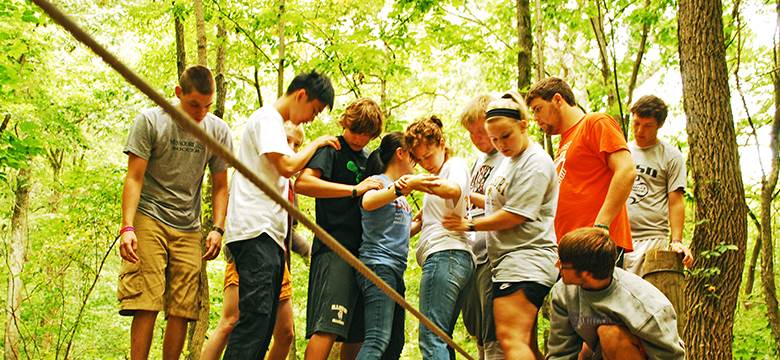 Stages of Group Development: Forming, Storming, Norming, PERFORMING
Stages of Group Development: Forming, Storming, Norming, PERFORMING
In the last part of our series we are examining the pinnacle stage of development, performing. If you have not read the other blogs in this series, you may wish to catch up here:
Forming Blog / Storming Blog / Norming Blog
The stages of group development were first talked about by Bruce Tuckman in 1965.
The majority of groups form with an end purpose in mind. That purpose can range from social to competitive to productive. A book club forms to discuss literature. A sports team forms to play against other teams. A committee forms to complete a task or manage an organization. Whatever the purpose, a healthy group eventually needs to perform in a manner that accomplishes the intended goal.
In the book Adventure Education Theory and Applications, Ewert and Garvey discuss this concept by saying, "Performing is when the group functions as a unit...The performance stage allows the group to get things done and provides a window into the relative success of the previous three stages."
A group that has reached the performing stage is ready to accomplish its stated purpose. As challenges arise, there will be differing opinions and points of view, but a performing team knows how to work past the conflict to reach the goal. The group plays to members' strengths and supports members' weaknesses. A pervading sense of trust allows individual members to relinquish control of some decisions, acknowledging that others in the group are capable to fulfill their role.
For a group to actively stay in the Forming stage, they must consciously or unconsciously remain superficial. In many ways these groups are similar to the crowds or masses discussed in the first part of this series. Members in a group like this are content to slide into a meeting, give a friendly nod to the people around them, listen to the business at hand without offering comment, and then move on to other things until it is time to meet again.
A group that fails to develop past the Storming stage will most likely either disband through attrition or maintain such a high turnover rate in membership that the original purpose for the group is lost. Individual members hold their own agendas ahead of the overall group's intent. Such a group is subject to factions and rivalry. You can find a strange example of this by googling "real bearded santa controversy" and reading the accounts.
A group held in the Norming stage of development is also at risk of self-destruction, but for different reasons. This group is so concerned about rocking the boat that it becomes stagnated in its purpose. With no goals or accomplishments, the group ceases to grow.
A group that has reached the Performing stage is a group that is healthy, growing, and accomplishing its goals. These are churches that are reaching the unchurched, youth organizations that are drawing in new members, committees that are working together, and Congresses that are...er, nevermind.
Has your group honestly evaluated its stage of development? Are you where you need to be in order to function as a cohesive, performing group? If not, perhaps it is time.
Lake Williamson is the perfect location for a staff planning retreat. The program staff at Lake Williamson has worked with thousands of groups, ranging from churches to Fortune 500 companies. We provide opportunities to self-evaluate and grow. Feel free to call Jeffery at 800.500.5922 or email him at adventure@lakewilliamson.org to discuss options.